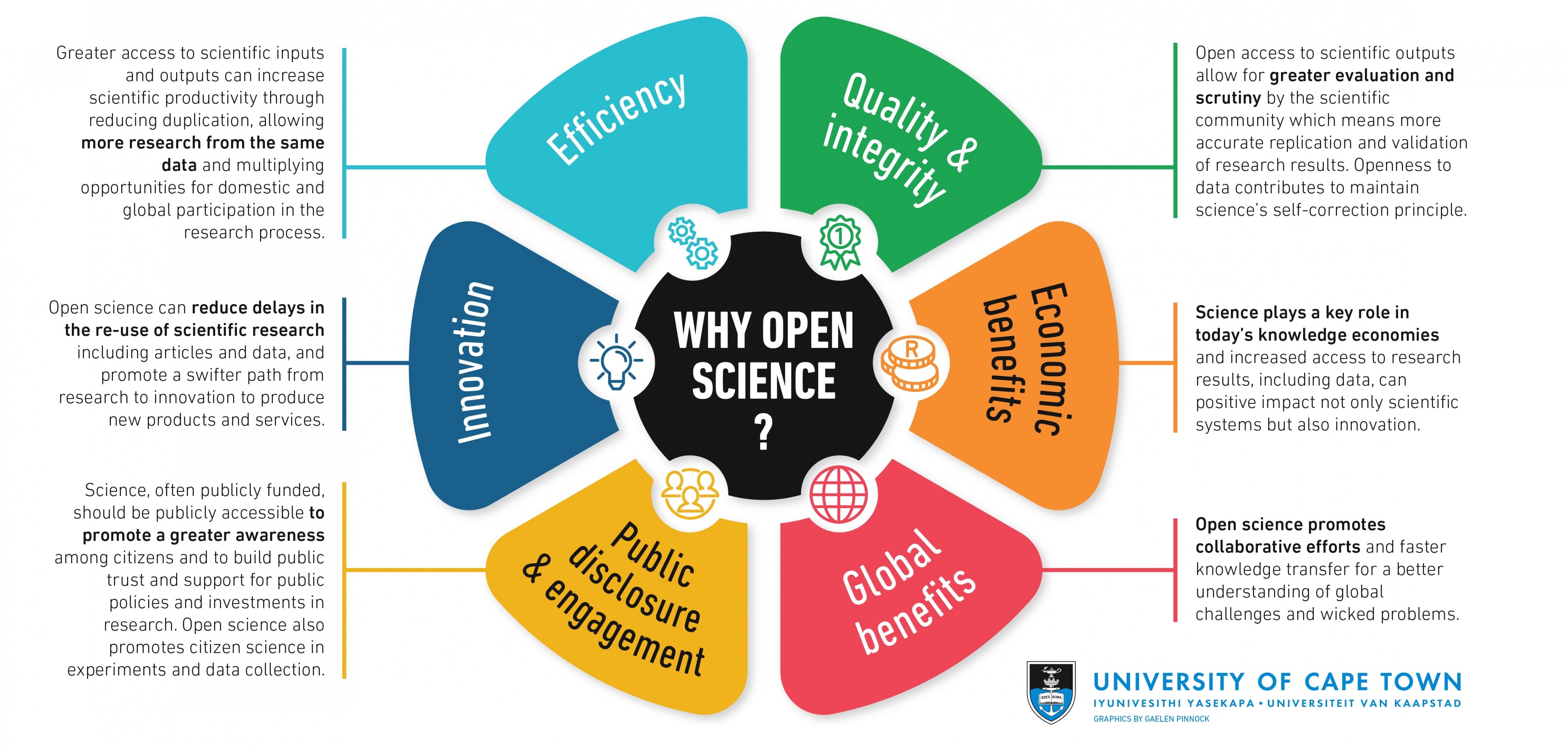Integrating systems for open science: Scholix and UCT’s research data integration project

Open science is the practice of science in such a way that others can collaborate and contribute, where research data, lab notes and other research processes are freely available, under terms that enable reuse, redistribution and reproduction of the research and its underlying data and methods
- Source: OpenAire presentation delivered by Dr Alessia Bardi of the Institute of Information Science and Technologies National Research Council in Italy in Cape Town on the 23-24 January 2020.

The benefits of open science are many including greater efficiency, innovation and quality and integrity. This is why, increasingly, funders, governments and research institutions themselves are both encouraging and requiring researchers to publish their final publication and their data in a way where it is findable, accessible, interoperable and reusable (FAIR).
There are however a number of hurdles to the implementation of open science, beyond just a change in culture, the practice of open science can be onerous for an individual researcher as they are expected to work with a range of research infrastructure systems depending on where they are in the research project cycle. For this reason UCT has embarked on a research data integration project (RDIP), coordinated by UCT eResearch, to integrate different systems to avoid duplication of processes by researchers and their support staff.
The RDIP will integrate the following systems:
- The electronic Research Administration (eRA) system)
- ZivaHub: Open Data UCT (the university’s data repository)
- UCT DMP (the university’s data management planning tool)
- OpenUCT (the university’s open access repository, for publications).
The RDIP will move the research endeavour to a stronger practice of open science as it means researchers can use their unique identifier, in the form of an ORCID iD, to automatically link the various elements of their research output and be sure the work is published in a manner that is FAIR.
To do this the RDIP is relying on the Scholix (Scholarly Link eXchange) framework, effectively a framework for exchanging information about the links between scholarly literature and data (and in time scientific software is to be included in this framework). The goal of Scholix is to enable an open information ecosystem to understand systematically what data underpins literature and what literature references data.
As part of the RDIP a two-day workshop was hosted by UCT eResearch, at which Dr Alessia Bardi of the Institute of Information Science and Technologies National Research Council in Italy presented on work being done within the European Union to forward the practice of open science through e-infrastructures for research. The workshop was attended by representatives from ICTS, UCT Libraries, UCT Research Office as well as colleagues from other universities. It covered a number of topics including the current scholarly communications environment from a global perspective, tools and systems which enable researchers to increase productivity through analysis and support within their academic projects and aggregative data infrastructures to ensure outputs are globally accessible thus improving citation counts, reducing duplication and assisting in the promotion of open science.
The final goal of the RDIP at UCT and the global open science movement is to bring into the same realm the places where science is performed and the places where it is published to increase levels of transparency and reproducibility of science worldwide.
Click here to see the slides presented at the workshop.
